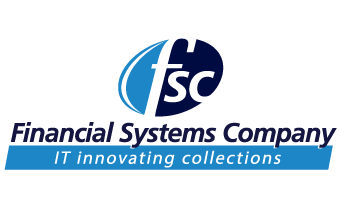Strategies to address credit impacts in 2021
The loan deferral program offered by financial institutions has allowed the sector to control its delinquency rates and allowed companies and individuals to postpone their loan payments. These deferrals may work for some individuals or companies that recover, but unfortunately there will be businesses that will not be able to do so and individuals who will not be able to re-enter the labor market or return to the same level of income.
For this reason, it is of great importance that the collection strategies are focused on the renegotiation and restructuring of loans with a comprehensive collection tool such as iUCollect, considering that most of the deferrals will be resumed from September to December of this year and the real impacts of credit risk, in the past-due portfolio, will be reflected in the first quarter of 2021.
The following graph from the Deloitte study shows an estimate of the impact of the Covid-19 health emergency on the different types of credit and the expected behavior in the coming months.
As a result of this behavior, the following implications are projected:
- The increase in non-performing loans projected for March 2021 could reach 3.6% or an additional 50% in delinquency, accompanied by a lower demand for loans, which implies a reduction in income for financial institutions.
- Lower risk appetite on the part of banks. This phenomenon will add to a drop in credit demand, both from companies and consumers, slowing growth and recovery.
Therefore, financial institutions should consider implementing in their collection strategies a specialized iUCollect negotiations module with which they can manage all types of special negotiations such as payment agreements, refinancing, restructuring, dations in payment, etc.; and it will automatically facilitate the segmentation of customers to whom they can apply such negotiations and define the conditions for automatic pre-approvals, controlling compliance with them. The negotiation module can be combined with our digital platform iUCollect for negotiation through ChatBots and Self-Service.
Other determining factors that force entities to make decisions regarding their collection strategy are the economic scenarios evidenced by the Deloitte study “Financial sector in Mexico: what’s next after COVID-19?
Based on these scenarios, financial institutions must develop strategies in each of the functional areas of the organizations.
The following are some of the actions and suggestions proposed by the study for the collections areas in their operational, strategic, talent, finance and technology activities.
Quick Containment (V)
- Develop loan restructuring strategies by sector.
- Adjust risk indicators.
- Reactivation plans for collection indicators.
- More rigorous risk segmentation.
- Prioritize development of digital channels.
- Prioritize automation.
- Focus on cybersecurity.
Missing year (U)
- Rethink the lending and investment limit strategy.
- Reduce costs of non-strategic products.
- Drive digitalization and automation.
- Develop growth strategies for differentiated products.
- Integrate self-service channels.
- Monitor risk appetite.
- Outsourcing and a more efficient IT infrastructure.
War economy (L)
- Redefine the operating model and develop self-service models.
- Reorient lending operations to clients in strategic activities.
- Make liquidity a top priority.
- 100% digital orientation.
- Extreme cybersecurity precautions.
- Remote work tools.
- Maximize automation and self-service.
- Maintain only critical technology projects.


